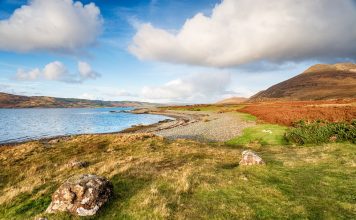Évora, a historic city in Portugal, is famous for its well-preserved medieval architecture, ancient Roman heritage, and rich cultural tapestry. The city is a living testament to its past, with a harmonious blend of Roman ruins, Gothic cathedrals, and whitewashed buildings that evoke a sense of timelessness. As a UNESCO World Heritage Site, Évora’s significance as a cultural and historical gem draws visitors from around the world.
The Temple of Diana, a Roman temple dating back to the 1st century AD, stands as a striking example of the city’s Roman heritage. The Capela dos Ossos (Chapel of Bones) is another famous site, known for its macabre yet thought-provoking interior adorned with human bones.
Famous Drinks in Évora
Évora is famous for its regional wines, including Alentejo wines that are renowned for their quality and distinct character. Wine tastings and tours are popular activities for visitors, allowing them to savor the flavors of the region. Additionally, local cafes offer a variety of traditional Portuguese drinks, from coffee to aperitifs.
Famous Sports in Évora
While Évora may not be widely known for specific sports, its picturesque surroundings provide opportunities for outdoor activities. Cycling and hiking are popular in the Alentejo region, allowing visitors to explore the scenic landscapes and historical sites at their own pace.
Famous Streets in Évora
Évora’s streets exude an old-world charm that resonates with its history. The Praça do Giraldo, a central square, is a hub of activity and a perfect starting point for exploring the city. Rua 5 de Outubro, a vibrant street, features shops, cafes, and traditional storefronts that contribute to the city’s timeless ambiance.
FAQs about Évora
- Why Should I Visit Évora?
- Évora’s rich history, well-preserved architecture, and UNESCO World Heritage status make it a captivating destination that offers a journey through time.
- What Are the Must-See Historical Sites in Évora?
- The Temple of Diana and the Capela dos Ossos are must-see sites that showcase Évora’s Roman and Gothic heritage, respectively.
- Can I Experience Wine Tasting in Évora?
- Absolutely. Évora’s proximity to Alentejo’s renowned vineyards offers the chance to indulge in wine tastings and explore the flavors of the region’s wines.
- Is Évora Suitable for Exploring on Foot?
- Yes, Évora’s compact size and pedestrian-friendly streets make it ideal for exploring on foot. Visitors can stroll through the city and discover its historical treasures.
- How Accessible is Évora from Other Portuguese Cities?
- Évora is accessible by public transportation, including trains and buses, making it a convenient destination for those traveling from other Portuguese cities.
See more Famous Places in Portugal:
- What is Lisbon Famous For?
- What is Porto Famous For?
- What is Amadora Famous For?
- What is Braga Famous For?
- What is Setúbal Famous For?
- What is Coimbra Famous For?
- What is Queluz Famous For?
- What is Funchal Famous For?
- What is Cacém Famous For?
- What is Vila Nova de Gaia Famous For?
- What is Loures Famous For?
- What is Évora Famous For?
- What is Rio de Mouro Famous For?
- What is Odivelas Famous For?
- What is Aveiro Famous For?
- What is Tavira Famous For?
- What is Sagres Famous For?
- What is Barreiro Famous For?
- What is Faro Famous For?
- What is Albufeira Famous For?













